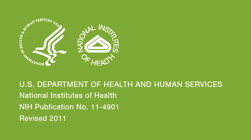Signals of Eating Disorders | Atypical Anorexia Patients' morbidity Similar full AN

 Eating Disorders | Taking note of patients that have lost weight could be a signal that there is a lot more going on such as an eating disorder.
Eating Disorders | Taking note of patients that have lost weight could be a signal that there is a lot more going on such as an eating disorder.
According to new research, adolescents with atypical anorexia nervosa (AN) have psychological and physical morbidity that may be just as severe as that among adolescents with full-threshold AN, according to new research.
In atypical AN, a person loses a significant amount of weight but does not become underweight, Dr. Susan M. Sawyer of the University of Melbourne in Australia and her colleagues explain in their report, published online March 29 in Pediatrics.
"We have observed a striking increase in this type of presentation among adolescent inpatients," they write. "Remarkably, of patients admitted to hospital with restrictive eating disorders, the proportion who were not underweight rose from 8% to 47% over a six-year period."
Adolescents with atypical AN have behaviors and cognitions similar to those of patients with AN, the researchers add, and similar acute physical complications. To investigate further, the researchers compared 42 patients with atypical AN and 118 with full-threshold AN who presented to a specialist pediatric eating disorder program.
Among the atypical patients, 71% were overweight or obese, versus 12% of the full-threshold patients. Average weight loss was 17.6 kg for the atypical AN group, compared to 11 kg for the AN patients, and the atypical patients also lost weight over a longer period of time (13.3 versus 10.2 months).
Frequency of bradycardia and orthostatic instability were similar for the atypical AN and AN groups. There were also no significant differences in the frequencies of psychiatric comorbidities or suicidal ideation.
- Patients with atypical AN reported more severe distress about their eating and body image.


